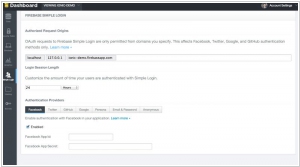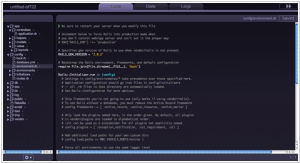Firebase vs Heroku
August 19, 2023 | Author: Sandeep Sharma
Firebase and Heroku are both popular platforms for deploying and hosting web applications, but they differ in their approach and key features. Firebase, developed by Google, is a comprehensive platform that offers a range of services for building and scaling web and mobile applications. It provides features like real-time database, authentication, cloud storage, hosting, and analytics. Firebase emphasizes ease of use, quick setup, and seamless integration with other Google services. On the other hand, Heroku is a cloud application platform that allows developers to deploy, manage, and scale applications without the need to manage infrastructure. It supports various programming languages and frameworks, offering features like auto-scaling, deployment pipelines, and add-on integrations. Heroku focuses on developer productivity, flexibility, and support for a wide range of application types.
See also: Top 10 Mobile App Builders
See also: Top 10 Mobile App Builders
Firebase vs Heroku in our news:
2015. Heroku launches application development platform for Enterprise
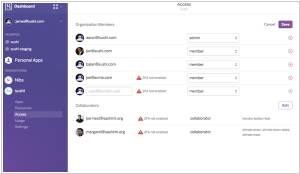
Heroku, the application development and hosting platform owned by Salesforce, has introduced a new offering known as Heroku Enterprise. This product line specifically targets large companies aiming to develop modern applications similar to those found in startups, while also providing the security features and access control often sought by enterprises. Essentially, Heroku Enterprise claims to offer the best of both worlds by enabling large enterprises to create agile-developed applications utilizing cutting-edge technologies like containers and new database services, all while adhering to the stringent governance requirements of the enterprise environment. It's an ambitious goal, and if Heroku successfully accomplishes it, they deserve commendation. With Heroku Enterprise, organizations can now effectively monitor all their developers, applications, and resources through a unified interface, streamlining their management processes.
2014. Google acquires mobile app builder Firebase
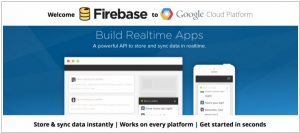
Google has completed the acquisition of Firebase, a backend service renowned for aiding developers in creating real-time applications for iOS, Android, and web platforms, enabling instantaneous data storage and synchronization. The Firebase team assures that the service will continue to operate as usual, retaining its platform-agnostic nature. While primarily driven by Google's interest in the technology and talent associated with Firebase, this acquisition also presents an opportunity for Google to introduce Firebase's extensive developer community of over 100,000 to its Cloud Platform. This marks the third significant acquisition by Google for its Cloud Platform this year, following the integration of monitoring service Stackdriver and the addition of Zync to bring visual effects rendering to its cloud computing service.
2014. Salesforce connects Heroku to its cloud

After acquiring the Heroku cloud application platform in 2010, Salesforce has finally established a connection between Heroku and Force.com through the introduction of the Heroku Connect tool. Although Heroku and Force.com are built on different development systems with distinct programming languages, Salesforce has successfully established a functional bi-directional link between them. This connection eliminates the need for extensive recoding, which can be both expensive and time-consuming, allowing Salesforce customers to effortlessly connect their Heroku apps to the Salesforce ecosystem. Salesforce recognizes the importance of showcasing tools like Heroku Connect to attract developers and assure them that Force.com seamlessly integrates with popular web toolkits like Node.js, Ruby on Rails, and Java.
2012. Top 7 Dreamforce stories

At the Dreamforce 12 conference Salesforce presented a lot of new products, but the problem is that most of these new products either had been already presented at the conference last year, or will become live to next year's conference. So, we'll just briefly go over the main ones: ***
2010. Force.com 2 - already 5 PaaS platfroms
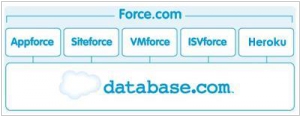
At the Dreamforce conference, Salesforce demonstrated one more time that now it's not so interested in CRM (it was mainly a subject for jokes) as in cloud platforms. Following the release of SaaS database Database.com, the company introduced another big Force.com feature - Heroku - the PaaS startup that Salesforce has recently acquired for $ 212 million. Heroku - is a cloud platform for developing and hosting Ruby-applications (Ruby - is a popular framework for developing Web apps, created by 37Signals). Heroku became one of the five PaaS-services included in the new version Force.com 2. And the new structure of the Force.com platform now looks like this: ***

